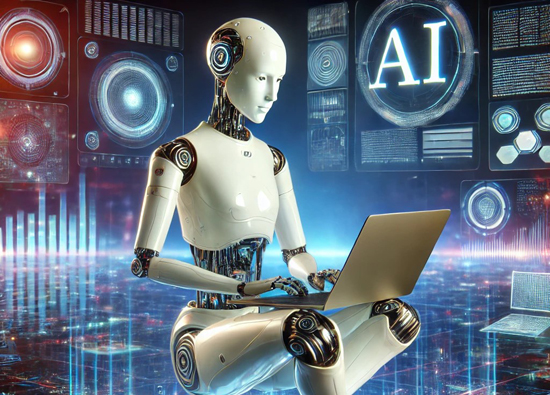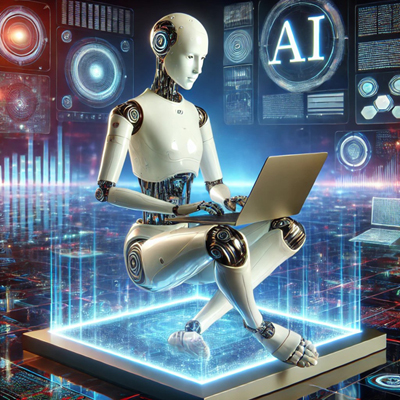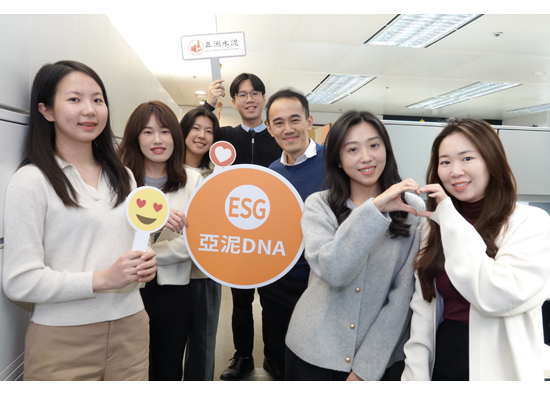04.2025 Office Talk
AI Agent Driven Intelligent Decision making in the New Era
Group Integrated Efficiency and Retail Planning Headquarters / Data Technology Group


With the rapid development of AI, agent-based artificial intelligence (AI Agent: AI that autonomously executes tasks) is gradually becoming the next wave. Whether it is generating content, reasoning and analysis, or creating new knowledge, future expert models will greatly enhance their ability to solve complex problems. This article introduces the definition, core technical capabilities, and application scope of AI agents, helping everyone to seize the opportunity and prepare for the new era of intelligent decision-making!
In 2023, OpenAI will launch ChatGPT 3.5, which will shock the world and demonstrate AI capabilities far beyond expectations, accelerating the attention and application of AI technology by individuals and enterprises. With the breakthrough of generative AI in text, image, and audiovisual creation, people are no longer satisfied with AI only serving as a source of inspiration or content production tool, but also expect it to autonomously perform subsequent tasks and truly liberate productivity.
The Evolution of AI: From Assistive to Autonomous

NVIDIA CEO Huang Renxun pointed out at the CES exhibition in early 2025 that AI agents will become the next huge artificial intelligence application, expected to surpass traditional AI and become autonomous intelligent systems that can understand customer needs, retrieve information, and use tools to solve problems, bringing trillions of dollars in business opportunities.
AI agents are artificial intelligence that can make decisions and complete actions autonomously without human intervention. After all, human expectations for AI are not limited to content generation and inspiration, but also hope that it can perform more complex operations. For example, ChatGPT can provide holiday planning suggestions, but booking rooms, flights, car rentals, etc. still require human execution. If AI can automatically check personal calendars, compare prices, select the best flights and accommodations, and truly implement automated operations, it will be more in line with expectations. This demand also leads to the development of intelligent systems - AI Agents - that can autonomously perform tasks.
Taiwan has translated AI agents into AI agents, which possess both intelligence and the ability to act as human agents, adding executive hands and feet to AI that could only use its brain and mouth. Due to the complexity and variability of events in human life, AI agents must be able to perceive changes and make corresponding plans and actions. Therefore, a perfect AI agent needs to have three elements: perception and memory, planning ability, and tool integration. This technological breakthrough transforms AI from a pure information provider to an intelligent partner capable of implementing decisions.
Core Technologies and Abilities
AI agents are able to understand language, perceive the environment, interact with the system, and automatically perform multiple steps to complete tasks. Their core technologies include:
Multimodal Perception: It not only processes text, but also comprehensively perceives the environment through speech recognition, image recognition, and sensor data.
Contextual Awareness: Using natural language processing (NLP) to understand the context of a conversation and improve the accuracy of responses.
Short Term Memory: Remembering current conversations and work progress to ensure coherence in multiple rounds of interaction.
Long Term Memory: Stores historical data and decision-making experience, allowing for more accurate recommendations based on past information in the future.
Diversified tasks and application scenarios
Based on the above technologies, AI agents can complete multiple tasks and ultimately achieve automated decision-making and execution.
Task Decomposition: Breaking down complex goals into small steps to ensure efficient execution. For example, when dealing with customer inquiries, first classify the questions, then choose an appropriate response strategy, and finally confirm the results.
Decision Making: Using reasoning and historical data analysis to select the best course of action and achieve optimal resource allocation. For example, when AI generates content, it first selects the appropriate style and tone.
Workflow orchestration: dynamically adjusting workflows based on different conditions to adapt to changes. For example, e-commerce customer service AI provides different response strategies based on inventory status.
API Integration: Can connect to CRM ERP、 External systems such as weather APIs can obtain real-time information and improve the accuracy of decision-making.
RPA Robot Process Automation: Combined with RPA tools, it automatically executes tedious tasks such as form filling and report generation.
LLM Enhancement: Based on situational dynamics, select different LLM language models (such as GPT-4, DeepSeek, etc.) to ensure optimal language understanding and reasoning abilities.
Data Analytics: By connecting to SQL databases and BI tools such as Tableau, it automatically generates data reports and insights to improve decision-making efficiency.
Integrate automation tools and connect third-party applications: can integrate various tools such as ChatGPT, LINE, Google Sheets, Notion, etc., to transform repetitive tasks into efficient automation and achieve intelligent task processing.
The application scope of AI agents is wide, which can assist enterprises in improving efficiency and reducing costs. The following are common applications currently available.
Customer service: Quickly respond to customer inquiries, manage knowledge base to improve customer service efficiency and customer satisfaction.
Personal productivity: Assist in scheduling, briefing production, task reminders, and help individuals efficiently manage their work.
Data analysis and report generation: automate data collection, generate reports, and provide valuable analysis and insights.
Community management: Automatically publish posts, reply to messages, and manage multiple community platforms in a unified manner.
Sales Assistance: Track potential customers, respond promptly to inquiries, and assist in creating sales materials to improve conversion rates.
Starting intelligent transformation from tools to partner AI agents
The Economist believes that AI agents will be one of the biggest technological breakthroughs of 2025, moving people from "talking to AI" to "executing". Therefore, it is not only an auxiliary tool for enterprise operations, but also a key partner for intelligent decision-making. Through knowledge base integration, cross system collaboration, and automated process optimization, it helps enterprises evolve from "information management" to "intelligent decision-making" and enhance their competitive advantage.
The retail industry such as Amazon and Walmart uses AI agents to manage inventory and personal recommendations, while the manufacturing industry also uses AI for production monitoring and quality inspection. With the advancement of technology, AI agents will continue to expand their application scenarios and become an indispensable core force in digital transformation. Enterprises should continue to pay attention to the development of AI technology and market changes to ensure that they can fully utilize technology and lay a solid foundation for future success.
#




















